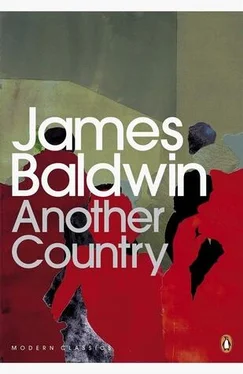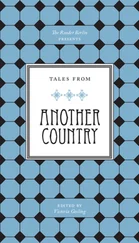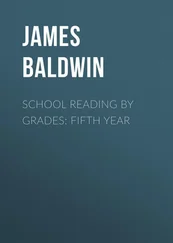Why don’t you take me in your
arms and carry me out of this lonely place?
— CONRAD, Victory
Eric sat naked in his rented garden. Flies buzzed and boomed in the brilliant heat, and a yellow bee circled his head. Eric remained very still, then reached for the cigarettes beside him and lit one, hoping that the smoke would drive the bee away. Yves’ tiny black-and-white kitten stalked the garden as though it were Africa, crouching beneath the mimosas like a panther and leaping into the air.
The house and the garden overlooked the sea. Far down the slope, beyond the sand of the beach, in the thunderous blue of the Mediterranean, Yves’ head went under, reappeared, went under again. He vanished entirely. Eric stood up, looking out over the sea, almost poised to run. Yves liked to hold his breath under water for as long as possible, a test of endurance which Eric found pointless and, in Yves’ case, frightening. Then Yves’ head appeared again, and his arm flashed. And, even from this distance, Eric could see that Yves was laughing — he had known that Eric would be watching from the garden. Yves began swimming toward the beach. Eric sat down. The kitten rushed over and rubbed itself against his legs.
It was the end of May. They had been in this house for more than two months. Tomorrow they were leaving. Not for a long time, perhaps never again, would Eric sit in a garden watching Yves in the water. They would take the train for Paris in the morning and, after two days there, Yves would put Eric on the boat for New York. Eric was to get settled there and then Yves was to join him.
Now that it had all been decided and there could be no turning back, Eric felt a sour and savage apprehension. He watched as Yves stepped out of the water. His brown hair was bleaching from the sun and glowed about his head; his long, wiry body was as brown as bread. He bent down to lift off the scarlet bikini. Then he pulled on an old pair of blue jeans which he had expropriated from Eric. They were somewhat too short for him, but no matter — Yves was not very fond of Americans, but he liked their clothes. He stalked up the slope, toward the house, the red cloth of the bikini dangling from one hand.
Yves had never mentioned going to America and had never given Eric any reason to suppose that he nourished such a desire. The desire arrived, or was, in any case, stated, only when the possibility arose: for Eric had slowly graduated from near-starvation to dubbing French films to bit roles in some of the American films produced abroad. One of these bits had led to television work in England; and then a New York director had offered him one of the principal supporting parts in a Broadway play.
This offer had presented Eric with the enormous question he had spent three years avoiding. To accept it was to bring his European sojourn to an end; not to accept it was to transform his sojourn into exile. He and Yves had been together for more than two years and, from the time of their meeting, his home had been with Yves. More precisely and literally, it was Yves who had come to live with him, but each was, for the other, the dwelling place that each had despaired of finding.
Eric did not want to be separated from Yves. But when he told Yves that. for this reason, he had decided to reject the offer, Yves looked at him shrewdly, and sighed. “Then you should have rejected it right away, or you should never have told me about it at all. You are being sentimental — you are maybe being, even, a little cowardly, no? You will never make a carrière here in France, you know that as well as I. You will just grow old and discontented and you will make me a terrible life and then I will leave you . But you can become a great star, I think, if you play this part. Wouldn’t you like that?”
He paused, smiling, and Eric shrugged, then blushed. Yves laughed.
“How silly you are!” Then, “I, too, have dreams that I have never spoken of to you,” he said. He was still smiling, but there was an expression in his eyes which Eric had come to know. It was the look of a seasoned and able adventurer, trying to decide between pouncing on his prey and luring his prey into a trap. Such decisions are necessarily swift and so it was also the look of someone who was already irresistibly in motion toward whatever it was he wanted; who would certainly have it. This expression always frightened Eric a little. It seemed not to belong in Yves’ twenty-one-year-old face, to have no relation to his open, childlike grin, his puppylike playfulness, the adolescent ardor with which he embraced, then rejected, people, doctrines, theories. This expression made his face extremely bitter, profoundly cruel, ageless; the nature, the ferocity, of his intelligence was then all in his eyes; the extraordinary austerity of his high forehead prefigured his maturity and decay.
He touched Eric lightly on the elbow, as a very young child might do.
“I have no wish to stay here,” he said, “in this wretched mausoleum of a country. Let us go to New York. I will make my future there. There is no future here, for a boy like me.”
The word future caused in Eric a small trembling, a small recoil.
“You’ll hate America,” he said, with vehemence. Yves looked at him in surprise. “What kind of future are you dreaming of?”
“I am sure that there is something I can do there,” Yves said, stubbornly. “I can find my way. Do you really think that I want to be protected by you forever?” And he considered Eric for a moment as though they were enemies or strangers.
“I didn’t know you minded being— protected —by me.”
“ Ne te fâche pas . I do not mind it; if I minded it, I would be gone.” He smiled and said, gently, reasonably, “But it cannot go on forever, I also am a man .”
“ What cannot go on forever?” But he knew what Yves meant and lie knew that what Yves said was true.
“Why,” said Yves, “my youth. It cannot last forever.” Then he grinned. “I have always been sure that you would be returning to your country one day. It might as well be now, while you are still fond of me, and I can seduce you into taking me along.”
“You’re a great little old seducer,” said Eric, “and that’s the truth.”
“Ah,” said Yves, wickedly, “with you it was easy.” Then he looked at Eric gravely. “So it is decided.” It was not a question. “I suppose that I must go and visit my whore of a mother and tell her that she will never see me any more.”
And his face darkened and his large mouth grew bitter. His mother had been a bistro waitress when the Germans came to Paris. Yves had then been five years old and his father had vanished so long before that Yves could scarcely remember him. But he remembered watching his mother with the Germans.
“She was really a putain . I remember many times sitting in the café, watching her. She did not know I was watching — anyway, old people think that children never see anything. The bar was very long, and it curved. I would always be sitting behind it, at the far end, around the curve. There was a mirror above me and I could see them in the mirror. And I could see them in the zinc of the bar. I remember their uniforms and the shine on their leather boots. They were always extremely correct —not like the Americans who came later. She would always be laughing, and she moved very fast. Someone’s hand was always on her — in her bosom, up her leg. There was always another one at our house, the whole German army, coming all the time. How horrible a people.”
And then, as though to give his mother a possible, reluctant justice:
Читать дальше












